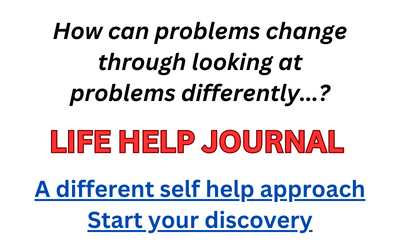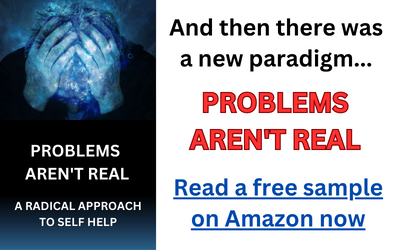Most people have absolute external identifications. This is to say that they identify completely with the external world, and have no sense of connection to an internal being.
They are entirely of the world, so to speak.
Their lives are committed wholly to some aspect or another of the external world, their sense of self comes from affiliations with the external world, and they think incessantly of external world happenings. So what is the problem with this, people will say. The external world is where life happens after all.
Actually there is an internal world, if you will, but most people either have no concept of it, are completely disconnected from it, or both. The notion of an internal world may make some believe that it has to do with living in one’s head. The opposite, in fact, is true. It is the people most strongly identified with the external world who spend much of their time within their heads (engaged in thought, to put it another way).
Entrance to the internal world that I’m referring to actually comes when thought stops…
When there is absolute identification with the external world, suffering is bound to occur. Why? Because the external world is highly unstable. What one is attached to today, what one believes is needed for well being, will ultimately change or be gone. This includes the human form itself.
And it is inevitable.
The stress of existence typically occurs when the external world does not meet one’s expectations. But how insane is it to rely upon something that is unstable? Of course one will be let down, and frequently, if they expect stability from something inherently unstable. Expect the external world to be unreliable, and now you are coming from a reality orientation.
Don’t let this overwhelm you with pessimism, however, because there is stability to be had within the experience of being. As I’ve previously said, this is found internal. It consists of a peace and ease — bliss — that is accessible when one disassociates from absolute external world identifications, and most importantly, steps out of the incessant thinking stream that accompanies absolute identification with the external world.
This internal stability is always there and it never changes and never ceases to be. It is the definition of stable and, in fact, is the only thing stable within the living experience. But again, it requires eliminating patterns of external world associations. Jesus spoke to attaining this when he said I have overcome the world.
Spiritualist Eckhart Tolle talks of a spiritualist master who, when divulging the secret of his enlightenment, said I don’t care what happens. What he meant by this is the events of the external world were inconsequential to him because he was grounded within the internal sanctuary of peace and ease.
Jesus referred to this internal space as the kingdom of God.
Nor will people say, ‘Here it is,’ or ‘There it is,’ because the kingdom of God is within you.
This internal sanctuary presence may be where references like ‘happiness comes from within’ originate from. But it is not as basic as happiness, it is salvation from an unstable — and often unkind — external world.
Find it where absolute connection to the external world stops.

